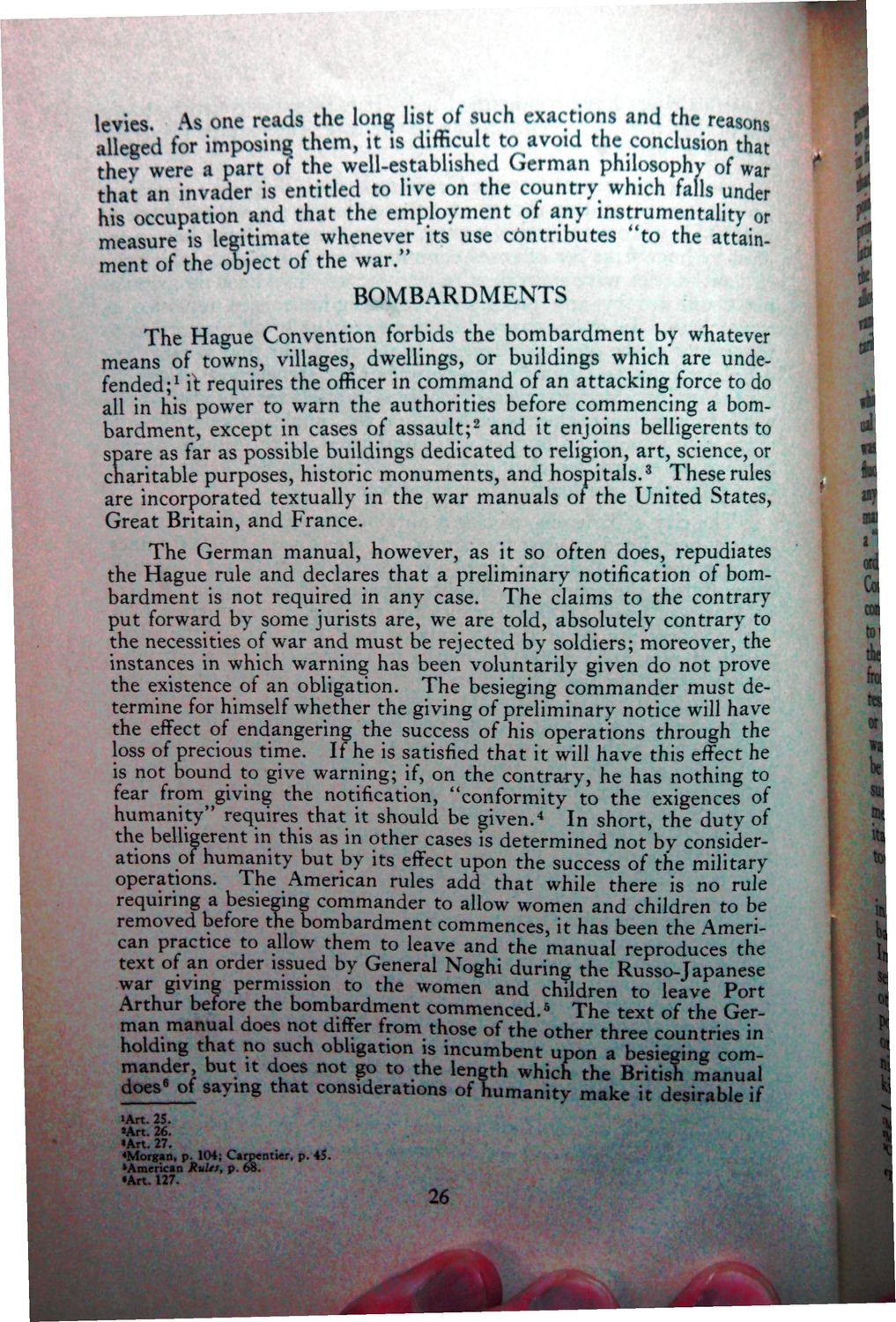| |
| |
Caption: War Publications - WWI Compilation 1923 - Article 14
This is a reduced-resolution page image for fast online browsing.

EXTRACTED TEXT FROM PAGE:
reads the long list of meg** - « . , - . . . , - j — s - — - - I t to avoid the conclusion that they were a part of the well-established uerman philosophy of war that an invader is entitled to live on the country which falls under his occupation and that the employment of any instrumentality or measure is legitimate whenever its use cbntributes " t o the attainment of the object of the war." BOMBARDMENTS The Hague Convention forbids the bombardment by whatever means of towns, villages, dwellings, or buildings which are unde1 fended; it requires the officer in command of an attacking force to do all in his power to warn the authorities before commencing a bom2 bardment, except in cases of assault; and it enjoins belligerents to spare as far as possible buildings dedicated to religion, art, science, or 3 charitable purposes, historic monuments, and hospitals. These rules are incorporated textually in the war manuals of the United States, Great Britain, and France. The German manual, however, as it so often does, repudiates the Hague rule and declares that a preliminary notification of bombardment is not required in any case. The claims to the contrary put forward by some jurists are, we are told, absolutely contrary to the necessities of war and must be rejected by soldiers; moreover, the instances in which warning has been voluntarily given do not prove the existence of an obligation. The besieging commander must determine for himself whether the giving of preliminary notice will have the effect of endangering the success of his operations through the loss of precious time. If he is satisfied that it will have this effect he is not bound to give warning; if, on the contrary, he has nothing to fear from^ giving the notification, "conformity to the exigences of 4 humanity" requires that it should be given. In short, the duty of the belligerent in this as in other cases is determined not by considerations of humanity but by its effect upon the success of the military operations. The American rules add that while there is no rule requiring a besiecing commander to allow women and children to be removed before the bombardment commences, it has been the American practice to allow them to leave and the manual reproduces the text of an order issued by General Noghi during the Russo-Japanese war giving permission to the women and children to leave Port 6 Arthur before the bombardment commenced. The text of the German manual does not differ from those of the other three countries in holding that no such obligation is incumbent upon a besieging commander but it does not go to the length which the British manual d o e s of sa in that y 8 considerations of humanity make it desirable if »Art. 25. *Art. 26. •Art. 27. •Morgan, p. 104; Carpentier, p. 45. •American RuUs, p. 68. •Art. 127. 26
| |